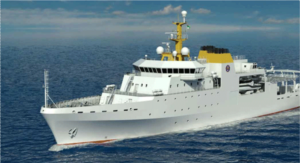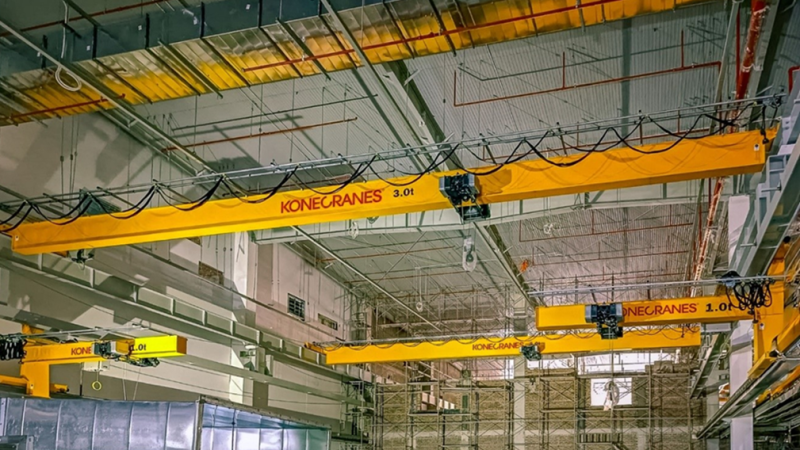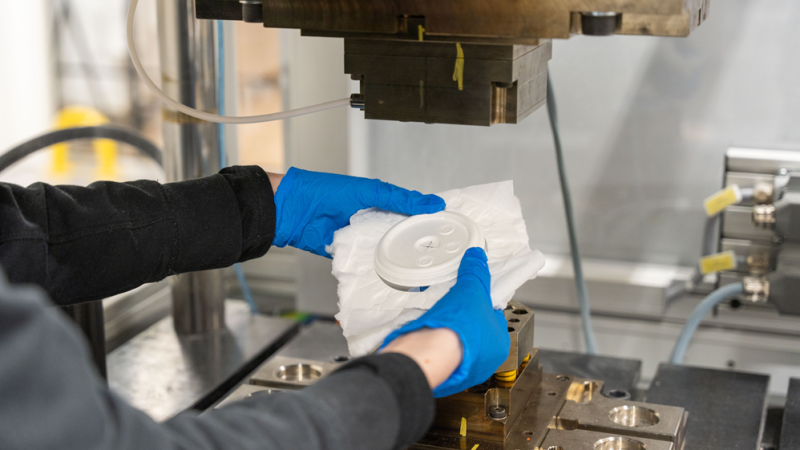South Africa’s aerospace, maritime and defence industries are among the country’s key economic sectors. People have been working in South Africa’s defence industry since 1886, growing and changing with the country until it underwent a major restructuring in 1994 with the end of apartheid.
“Today we are an industry that employs 20,000 individuals through 702 companies across the air, land, sea, space, and cyber security domains,” says Sandile Ndlovu, Chief Executive Officer of the South African Aerospace Maritime & Defence Industries Association. “We are geared towards the export market. 80% of what our industry produces is currently exported.”
The South African Aerospace Maritime & Defence Industries Association, or AMD, was established in 1997 at the instigation of South Africa’s Minister of Defence.
“There were four associations speaking for the various industries, and the minister said that he only wanted to deal with one association,” says Ndlovu. “That association is comprised of more than 700 companies and run by a board of directors. Within our regulatory environment, its primary responsibility is to pursue a close and productive relationship with our government. Our job is to lobby for an environment that is conducive for the entire sector.”
 Punching Above Its Weight
Punching Above Its Weight
On top of that, the AMD’s job is to advocate for South Africa’s aerospace, maritime and defence industries as a whole, and talking to Ndlovu it is clear he is passionate about South Africa’s role in these vital sectors.
“Relatively speaking, when one looks at the size of our industry, we are relatively small compared to our equivalents around the world,” Ndlovu says. “But there are still areas where we can compete with the output of bigger and more powerful countries and beat them.”
South Africa’s industry can do this because it is able to continuously and reliably produce high quality products that are available when customers need them. However, there are also economic advantages to doing business with South Africa.
“We do our business in our local currency, which makes our products more affordable when one is converting from US currency,” Ndlovu points out. “There are a number of sectors where we consider ourselves to be world leaders, and the market affirms this.”
The position of the South African government also makes its defence industry an appealing partner.
“We work in a regulated environment. We would not be able to export 80% of what we produce without express government permission to do that,” Ndlovu says. “Other countries see us as a principled, independent country that is not prone to blackmail or influence by other big countries out there. They are aware of scenarios where clients have fully paid, but when the export is ready to ship that country’s government changes and does not like the country buying. They won’t get that with South Africa.”
Yet, at the same time, that regulatory environment can prove to be a challenge. When we speak to Ndlovu, he has just returned from making a presentation to South Africa’s Parliament, and its portfolio committee on defence.
“There is a law in place that was passed when South Africa was not an exporter of military products, and it may be difficult for military products to be exported under it,” Ndlovu explains. “We are telling our government that times have changed. When this law was written, we were exporting 15% of what we produced. Now that the figure is 80%, we need to bring the law up to date.”
The AMD is asking the government to reconsider not the fact of the law itself, but its implementation and how that will fit into the country’s modern market.
“We want to be regulated, but it must be done in a way that allows us to compete without hindrance,” says Ndlovu. “We engage parliament and the executive national cabinet on the need to bring this law up to speed. All stakeholders agree that we need to enable the sector to compete and do business.”
Ndlovu points to how South Africa compares with countries such as Sweden, where a marketing or export permit takes seven days to three weeks to deliver. South Africa’s permit delivery times can take anything from six to twelve weeks.
“You can see how uncompetitive that is,” Ndlovu remarks. “How are we to compete with companies like Saab when our environment is so cumbersome?”
 The Way Forward
The Way Forward
However, Ndlovu has no doubt that South Africa’s industry will be able to do just that.
“The sector is beautifully positioned. We are moving into the fifth industrial revolution, and it will require skills currently not available in the numbers required in South Africa, and the sector that can produce those skills in large quantities is aerospace and defence,” Ndlovu observes. “That is the message we are taking to government. We can help them create the skills the South Africa of the future will require, and no other sector can do that.”
The aerospace and defence sectors offer practical experience and practical knowledge, with its businesses collaborating with South Africa’s universities to create tailor-made programs that will produce the graduates that South Africa’s economy will need for the next technological revolution.
“It can be an igniter of excellence for the country,” promises Ndlovu.
Ndlovu also sees a crucial role for AMD in that process.
“We need to be properly coordinated and organised, with a strong centre that can hold our sector together,” he says. “That is the role that our association will play, so we can continue to develop and endorse products for the future. If we do not do that, we will simply be consumers of others’ technology, and we will not be able to control the price.”
But ultimately, Ndlovu believes that AMD’s role is to advocate for more than even the industries that it represents.
“The association and our industry exist within a very specific context here in South Africa,” Ndlovu tells us. “We face high levels of unemployment and poverty. The country’s growth, its economic activity and the associated benefits are not being distributed equitably or evenly. We have a state starting to become weak where it should be strong. As an association, we are taking it upon ourselves to say we will partner with the government to address those challenges. The primary responsibility of any company is to help its immediate community.”






